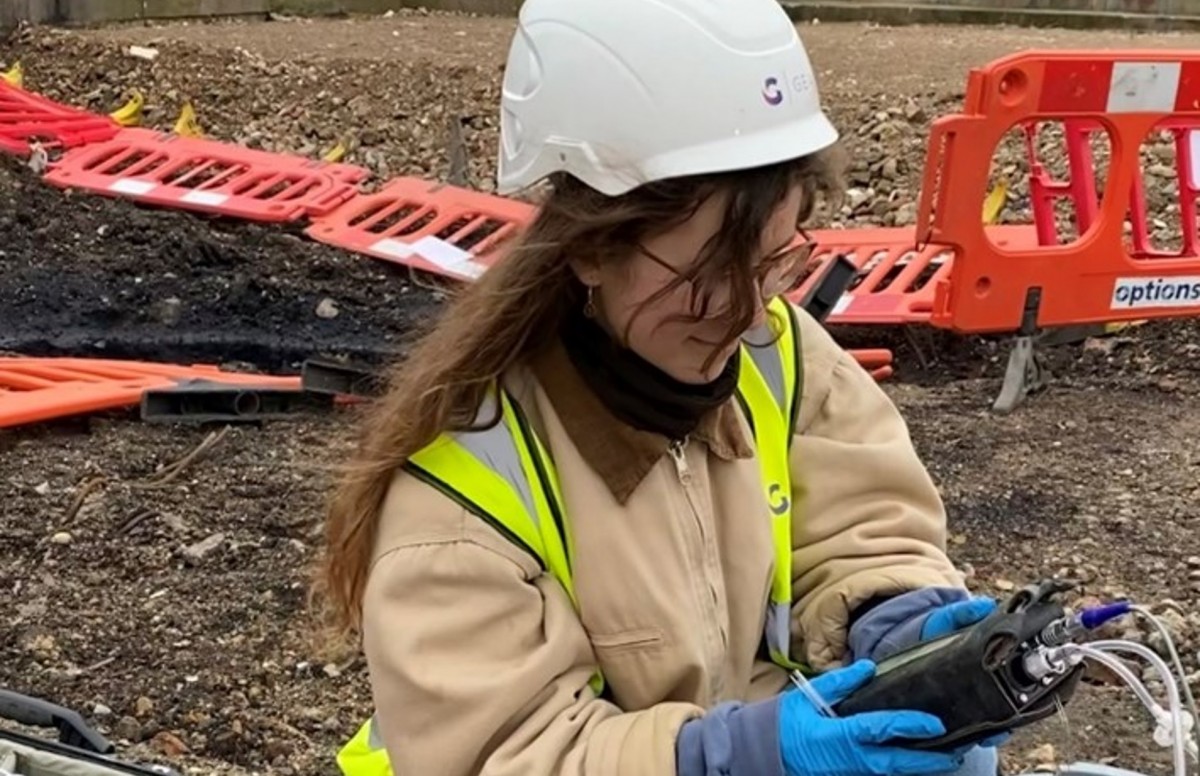Fascination About Geotheta

A geotechnical engineer is a specialized civil designer that concentrates on the actions of soil, rock, and various other products discovered underneath the Earth's surface. They use clinical principles and engineering strategies to assess the properties and behavior of these products to sustain the safe and reliable design, building and construction, and maintenance of framework projects.
They perform site investigations, gather examples, perform laboratory tests, and assess information to evaluate the suitability of the ground for building tasks - Engineer of Record. Based on their findings, geotechnical engineers provide suggestions for foundation design, slope security, preserving frameworks, and mitigation of geotechnical risks. They collaborate with various other specialists, such as architects, structural engineers, and building groups, to ensure that geotechnical considerations are integrated into the overall project design and execution
By assessing the behavior and buildings of soil and rock, they can identify prospective geotechnical risks such as landslides, dirt negotiation, or slope instability. Their experience aids protect against failings or crashes that can threaten lives and property. Below are some detailed duties and responsibilities of a geotechnical engineer: Website Examination: Geotechnical designers conduct site examinations to gather data on subsurface problems.
They analyze the data to comprehend the properties and actions of the soil and rock, including their strength, permeability, compaction qualities, and groundwater conditions. Geotechnical Evaluation and Layout: Geotechnical designers assess the data gathered during website examinations to examine the security and viability of the site for construction tasks. They do geotechnical computations and modeling to examine variables such as birthing capability, negotiation, slope stability, lateral planet stress, and groundwater circulation.
Fascination About Geotheta
Structure Design: Geotechnical designers play a vital role in making structures that can safely sustain the desired structure. They evaluate the soil conditions and tons needs to determine the ideal foundation type, such as superficial structures (e.g., footings), deep structures (e.g (https://www.edocr.com/v/p4pabymp/ianhammond2191/geotheta)., heaps), or specialized techniques like dirt improvement. They think about elements such as settlement limits, birthing ability, and soil-structure communication to establish ideal structure styles
They review building and construction strategies, screen website tasks, and carry out field inspections to validate that the style referrals are complied with. If unexpected geotechnical issues arise, they evaluate the situation and provide suggestions for removal or modifications to the design. Risk Analysis and Mitigation: Geotechnical engineers evaluate geotechnical hazards and risks linked with the job website, such as landslides, liquefaction, or soil erosion.

Partnership and Communication: Geotechnical designers work very closely with various other professionals involved in a task, such as architects, structural designers, and construction teams. Reliable communication and cooperation are vital to incorporate geotechnical considerations into the total job style and construction procedure. Geotechnical designers offer technological expertise, response queries, and make certain that geotechnical requirements are satisfied.
Geotheta Things To Know Before You Get This
Here are some sorts of geotechnical engineers: Foundation Designer: Structure engineers focus on developing and analyzing foundations for structures. They analyze the dirt conditions, tons demands, and website qualities to establish the most proper structure kind and layout, such as superficial structures, deep foundations, or specialized strategies like heap structures.
They evaluate the factors affecting slope stability, such as dirt homes, groundwater conditions, and slope geometry, and create strategies to avoid incline failings and alleviate threats. Quake Engineer: Quake designers concentrate on evaluating and making structures to endure seismic forces. They evaluate the seismic risk of a site, evaluate soil liquefaction capacity, and develop seismic design criteria to make certain the safety and durability of frameworks throughout earthquakes.
They carry out field testing, collect samples, and analyze the accumulated data to define the soil residential or commercial properties, geologic formations, and groundwater conditions at a site. Geotechnical Instrumentation Designer: Geotechnical instrumentation designers concentrate on monitoring and gauging the habits of soil, rock, and frameworks. They mount and preserve instrumentation systems that keep track of elements such as dirt settlement, groundwater degrees, slope activities, and architectural displacements to examine performance and give early cautions of possible problems.
The 45-Second Trick For Geotheta
They often tend to be investigatory individuals, which suggests they're intellectual, reflective, and investigative. They are interested, systematic, sensible, analytical, and rational. Some of them are also social, meaning they're kind, generous, cooperative, individual, caring, handy, empathetic, skillful, and pleasant - Consulting Engineers.
In the office atmosphere, geotechnical engineers use specialized software program devices to do estimations, develop styles, and examine information. They prepare records, testimonial project specifications, connect with customers and staff member, and coordinate task activities. The office setup gives a helpful atmosphere for research, evaluation, and cooperation with other experts associated with the job.
Not known Details About Geotheta
They often visit job websites to perform site examinations, examine geotechnical problems, and gather information for analysis. These gos to involve taking a trip to various locations, sometimes in remote or difficult surfaces. Geotechnical engineers may execute soil tasting, conduct examinations, and monitor building tasks to make sure that the geotechnical facets of the project are being carried out properly.
Geotechnical engineers additionally work in specialized geotechnical laboratories. In these facilities, they carry out experiments, carry out tests on dirt and rock examples, and evaluate the engineering properties of the products. Geotechnical research laboratory designers function thoroughly in these environments, taking care of screening equipment, running instruments, and taping data. They work together with other laboratory staff to make certain exact and reliable screening outcomes.
Comments on “The Best Strategy To Use For Geotheta”